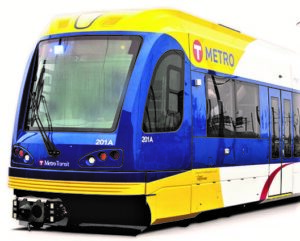BY JOHN CHARLES WILSON
9/11 changed long-distance transportation in America by causing the industry and its governmental partners/regulators to ramp up the “Security State.” Though the changes in airline travel are the most well-known, long-distance bus and train travel were affected as well. Amtrak and Greyhound both adopted ID requirements for passengers (though only Amtrak consistently enforces them). Some of the changes have no obvious relation to terrorism: Greyhound raised the minimum age for independent travel from 12 to 17, and Amtrak raised theirs from 12 to 16. Unless there’s an underground cabal of middle school terrorists I don’t know about, this has little to do with real “security.”
Fast forward to the COVID-19 pandemic.This time we will probably see changes to the urban and suburban transit industries as the “Sanitary State” ramps itself up alongside the “Security State.” Unfortunately, there will probably be side effects that have little to do with real “sanitation,” like making it harder for homeless people to access transit service.
Choice riders—those who have cars and driver’s licenses but use transit by choice—have mostly either started driving to work instead, or working from home and not commuting at all. This pattern will probably continue after the pandemic is under control, as the meme that buses and trains are “unsanitary” continues to work its way into these people’s mind.
The loss of choice riders means that transit will be seen more as a “welfare” service for the transit dependent, and not a public service for everyone. This will destroy what remaining support there is for transit in the Minnesota State Legislature.
What does this bode for the Twin Cities? You can expect suburban express buses to be decimated. Construction of new transit facilities may not happen beyond those now already funded or underway. Southwest Light Rail will still happen, but we may as well kiss the Bottineau Line good-bye. The Orange Line has to be built to fulfill the existing contract with the federal government, as it is part of the I-35W improvements already under construction; however, the Gold Line could end up canceled. The B, D, and E lines are in danger too.
So, what is to be done? The pro-transit community needs to send a consistent message that public transit is not only desirable, it is necessary to a well-functioning metropolitan area. In addition, we need people to show a little unity. Everyone counts: rich and poor, homeless and “homeful,” hygienic and non-hygienic. Fostering class divisions helps no one.
If you used transit before the pandemic, please consider coming back after it is over. Sure, your personal car may seem more sanitary, but in normal times—which we all hope to get back to—you’re no more likely to get sick from a normal bus or train ride than you are from other normal, daily activities. And please, don’t spray Lysol on that non-hygienic guy in the seat next to you. Not only is it mean and insulting, it’s really not necessary. Remember: Smelling bad is not a sin.
Of course, right now, Metro Transit is requesting that people use their service for essential trips only, even though the Stay at Home order has been lifted. It is not yet time to start riding buses and trains for fun, but we can still support the system mentally and by praising it in both speech and print.
Glory to Metro Transit! Glory! Glory! Glory!
Long live transit throughout the land, built by the people’s mighty hand!























